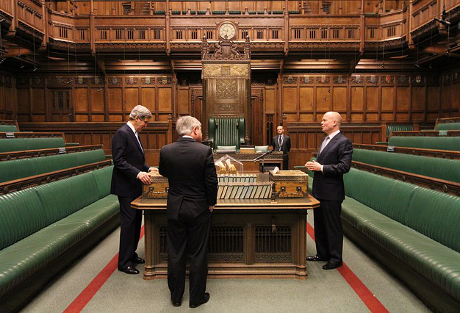-


First Year Law Fair 2026
Kick-start your legal career with a day of expert sessions designed for first-year law students. Learn how to navigate the path to qualification, understand the law firm landscape, and start building the skills firms look for.
- Wed, 18 Mar
- 13:00-18:00 GMT
- First Year Law Fair
Blog
Will There Be A Second General Election In 2015?

The big day has almost arrived, and no, we’re not talking about Mark Wright’s wedding to the newly crowned ‘Sexiest Woman in the World’, Michelle Keegan.
On May 7, voters will flock to polling stations across the country to have their say regarding their local member of parliament, which of course, dictates who will govern the country. If the polls are to be believed, we’re on course for another hung parliament, with no party able to form a majority government; where there are more MPs for one party than all the other parties combined.
As the UK has only been through two elections that have produced a hung parliament, the government-forming process is slightly unclear. For instance, why did Prime Minister Edward Heath have four days of negotiation with the Liberals in 1974, despite not commanding the largest party, whereas David Cameron commanded the largest party in 2010 but was not the incumbent Prime Minister? Shouldn’t Gordon Brown have had ‘first refusal’, as it were?
Confusing, right. That’s why The Cabinet Manual was created in 2011 and set out the procedure to be taken in the event of a hung parliament.
Firstly, the incumbent government remains in office until the Prime Minister tenders their resignation to the Queen. The coalition would be more than entitled to wait to see if it can command the new House of Commons, “but is expected to resign if it becomes clear that it is unlikely to be able to command that confidence and there is a clear alternative.” Given that the folks at the SNP have admitted to doing everything to keep the Tories out of power, and Labour likely to kick up a fuss if the coalition tries to continue, it seems likely that we’ll be heading down the ‘clear alternative’ route.
With David Cameron arguing that a coalition government would threaten the stability of the country and Ed Miliband refusing to go into coalition with the SNP in a feeble attempt to appear that he hasn’t given up on winning in Scotland, a minority government is a possibility. But will a minority government survive?
Before we immediately say ‘absolutely not!’, it’s important to consider the Fixed Term Parliaments Act 2011. Section 2 of the Act outlines how an election can only be held before the end of a Parliament’s five year tenure if two-thirds of the House of Commons resolves “That this House has no confidence in Her Majesty’s Government” and, within fourteen days, doesn’t subsequently resolve “That this House has confidence in Her Majesty’s Government”.
So, let’s assume that the figures provided by electionforecast.co.uk translate roughly into a result. The Conservative Party would have 281 seats, Labour would have 266, the SNP would have 52, the Liberal Democrats would have 26 and the 25 other seats would go elsewhere. Given that a minority government usually relies upon “a series of ad hoc agreements based on common interests” it wouldn’t be impossible to assume that a minority Conservative government could see out a term in Parliament. This is because even if Labour and the SNP vote down everything the Conservatives propose, and maintain a lack of confidence in the government, their numbers wouldn’t amount to two-thirds majority. Indeed, even if every single non-Conservative Member of Parliament didn’t have confidence in the government, there still wouldn’t exist a two-thirds majority.
On top of this, Budgets and Queens Speeches have been previously viewed as the litmus tests for governmental confidence. The Fixed Term Parliaments Act means that there has to be a vote on the motions outlined above.
A minority government wouldn’t be unworkable either, and it is unlikely to bring the country to a standstill and force a second election within the year. Despite rhetoric, there are vast similarities between the Conservatives and Labour, and there are many issues which are bi-partisan.
So, despite how enthusiastic you are about this election and despite how much you want another two months of campaigning for ANOTHER election, it’s slightly improbable.
Academy tools to help you get a job
-

Free Watson Glaser Practice Test
Understand the test format, compare your performance with others, and boost your critical thinking skills.

